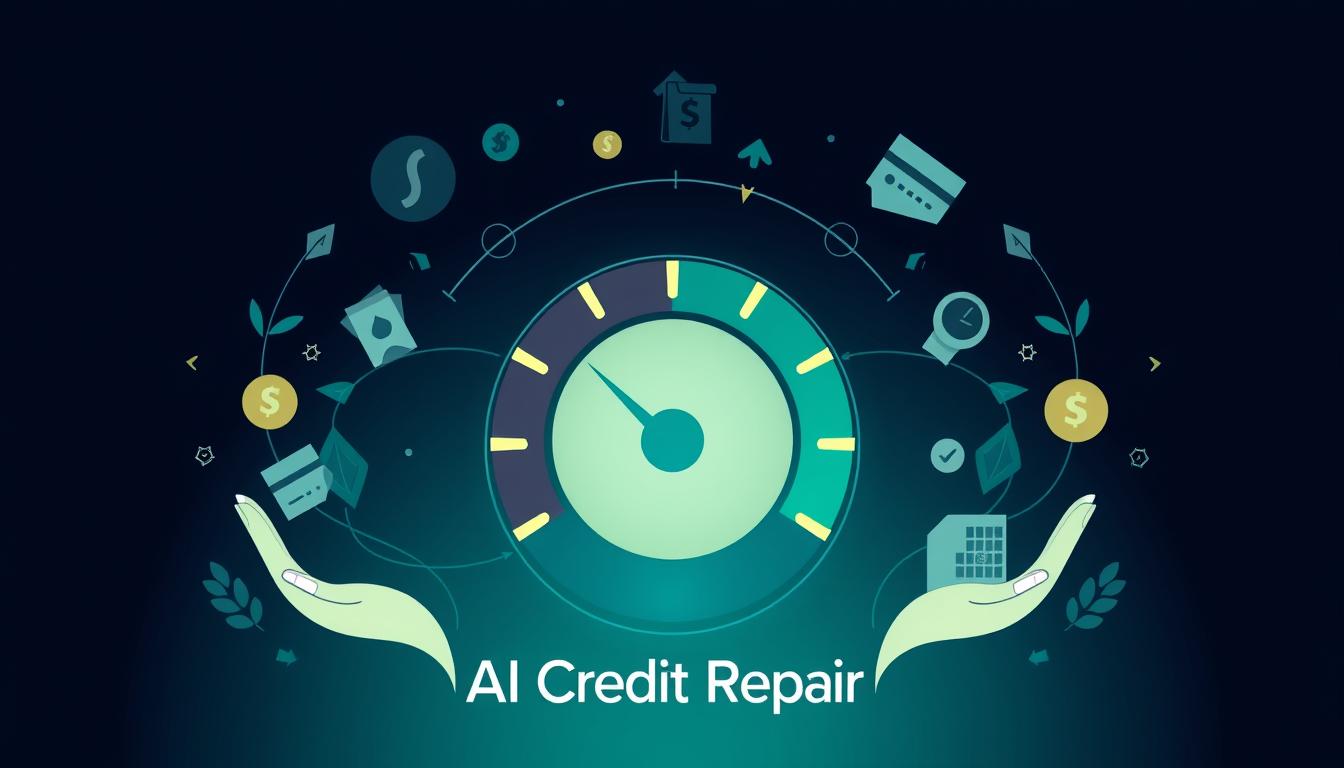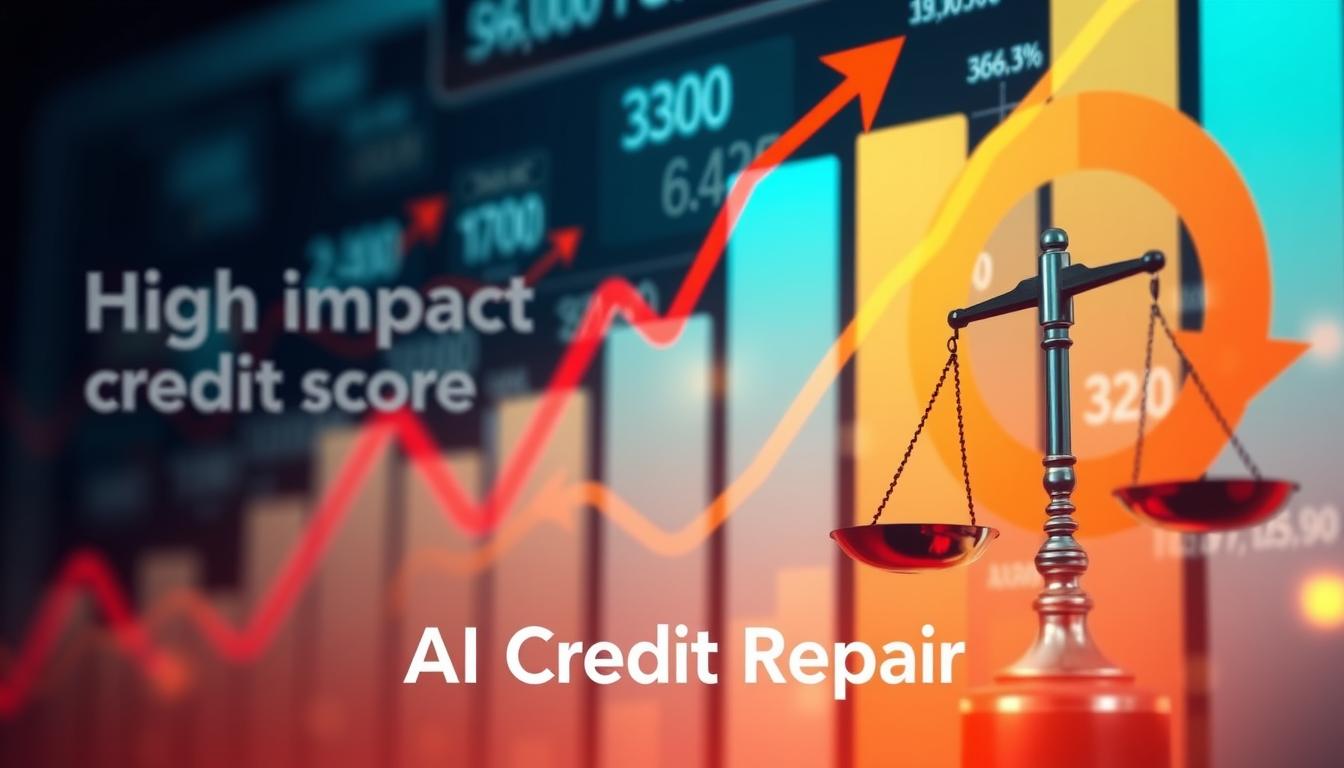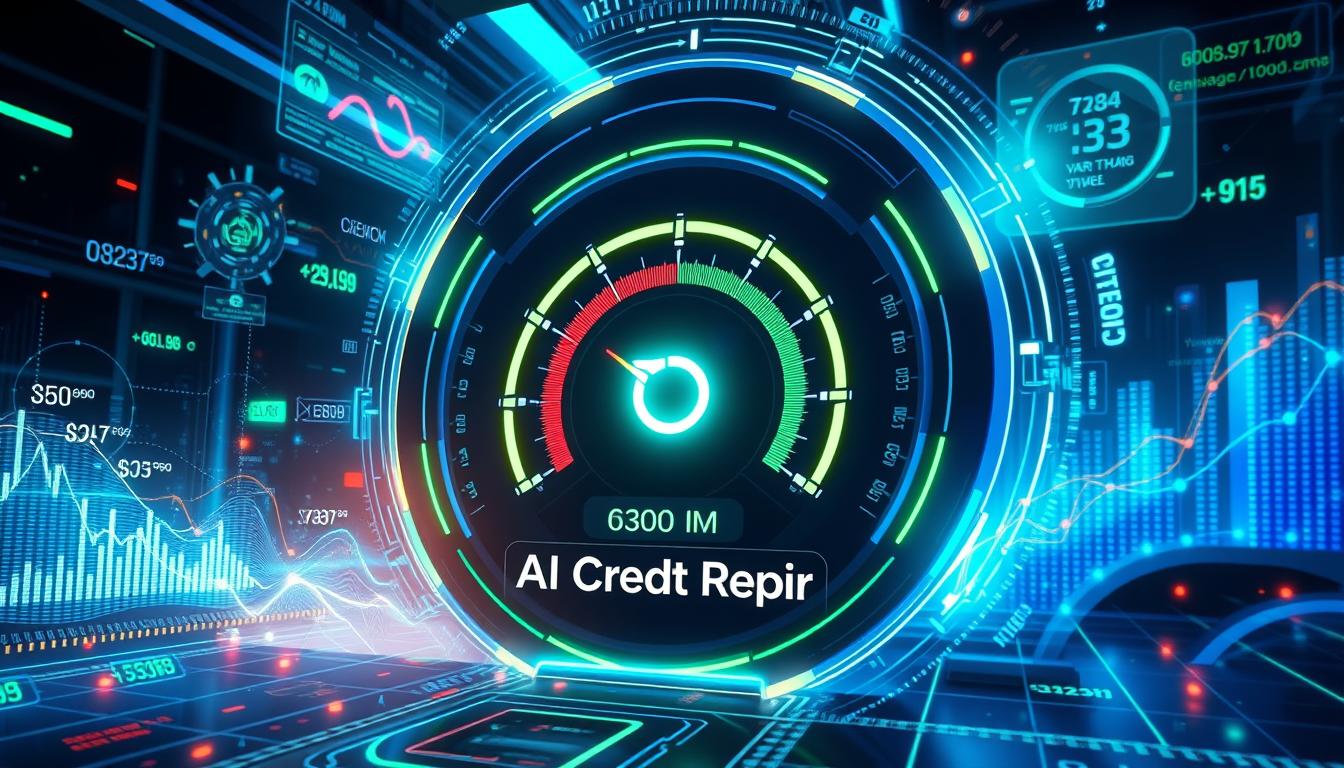Your credit score reflects your creditworthiness. It’s based on your credit history, payment patterns, and debt management. Your score affects your ability to get loans, credit cards, housing, and jobs.
Low impact” changes can slightly affect your credit score. Understanding these changes helps you make smart financial decisions. It also helps you avoid potential problems with your credit.
Key Takeaways
- Understanding “low impact” on your credit score is crucial for maintaining a healthy financial profile.
- Factors like credit inquiries and utilization fluctuations have a low impact on your score.
- Late payments and new credit accounts can have a more significant effect.
- Regular monitoring helps you identify and address low-impact changes to your credit score.
- Paying bills on time and keeping low credit utilization can improve your credit score.
- Knowing credit score facts helps you make informed decisions about your financial future.
Understanding Credit Score Impacts
Your credit score is a vital financial metric. Lenders use it to assess your creditworthiness. This three-digit number, called the FICO score, usually ranges from 300 to 850.
What is a Credit Score?
A credit score shows how well you manage debt. It’s based on your credit report information. This includes payment history, credit use, and length of credit history.
Factors Affecting Credit Scores
- Payment History: This accounts for the largest portion of your credit score and reflects your track record of making on-time payments on credit cards, loans, and other credit accounts.
- Credit Utilization: This measures the amount of available credit you are using, with a lower utilization rate generally indicating a healthier credit profile.
- Length of Credit History: The longer you have had credit accounts open and in good standing, the more it can positively impact your credit score.
- Types of Credit Used: Having a diverse mix of credit types, such as credit cards, loans, and mortgages, can benefit your credit score.
- Credit Inquiries: Each time you apply for new credit, a hard inquiry is recorded on your credit report, which can temporarily lower your credit score.
Knowing what affects your credit score is key. It helps you keep a good credit profile. This knowledge also aids in making smart money choices.
Low Impact Credit Score Changes
Not all credit score changes significantly affect your creditworthiness. Low-impact changes are normal in managing your financial health. They often result from routine financial activities.
Credit utilization fluctuations are common low-impact changes. Your credit utilization ratio compares outstanding balances to total available credit. It can change as you make purchases or pay off debts.
Credit inquiries by lenders can cause small, temporary dips in your credit report. These inquiries generally have minimal long-term effects on your credit history and score.
Low-impact changes offer insights into your financial habits and credit management. Regular monitoring of your credit score and report is beneficial. It helps you understand these fluctuations and identify areas for improvement.

“Keeping an eye on your credit score and understanding the factors that influence it can help you make informed financial decisions and maintain a healthy credit history.”
What Causes Low Impact on Credit Score?
Your credit score is vital for lenders to assess your creditworthiness. Some factors can cause small changes in your score. Knowing these can help you manage your credit better.
Major changes to your credit profile can greatly affect your score. However, some factors only cause minor fluctuations. Understanding these can help you avoid unnecessary worry.
Credit Inquiries
“Hard pulls” happen when you apply for new credit. These can slightly lower your score for a short time. Not all credit checks are the same, though.
Soft inquiries don’t affect your score at all. These include checking your own credit report or getting prequalified by a lender.
Credit Utilization Fluctuations
Your credit utilization ratio shows how much available credit you’re using. Small changes in this ratio can cause minor score adjustments. Keeping your credit use below 30% can help minimize these effects.
Focus on maintaining a healthy credit profile. This way, you won’t worry about small score changes. Regular credit monitoring can help you keep a strong score.
“Monitoring your credit reports regularly and addressing any issues can help you maintain a strong credit score over time.”
What Does Low Impact Mean on Credit Score?
Your credit score can change in different ways. Low-impact changes are small shifts that don’t greatly affect your creditworthiness. These changes are common and usually temporary.
Low-impact changes on your credit score can happen for various reasons. Small changes in credit utilization or occasional credit inquiries are examples. These appear on your credit report but don’t threaten your financial health.
It’s crucial to know the difference between low-impact and high-impact changes. High-impact changes, like late payments, can greatly affect your creditworthiness. Low-impact changes are usually short-lived and won’t harm your credit history.
“Monitoring your credit score and understanding the impact of changes is crucial for maintaining financial health and making informed decisions about your credit.”
Stay informed about different credit score changes and their effects. This knowledge helps you manage finances better. You can make smarter choices about your credit activities.

| Characteristic | Low-Impact Changes | High-Impact Changes |
|---|---|---|
| Effect on Credit Score | Minor fluctuations, typically temporary | Significant and lasting impact |
| Examples |
|
|
| Action Required | Typically no immediate action needed | Prompt action and attention required |
Importance of Monitoring Credit Score
Keeping an eye on your credit score and credit report is vital. It helps you make smart money choices. You can spot and fix issues before they grow.
Regular checks keep your credit health in good shape. Even small changes can add up over time. They might affect your overall credit score down the road.
- Set up credit score monitoring alerts to stay informed about changes.
- Check your credit report often to find and fix any mistakes.
- Learn what impacts your credit score, like payment history and credit use.
- Use smart habits to keep a healthy credit score.
Watch your credit score closely to maintain good credit health. This helps with low-impact changes. It can help you reach your money goals.
A strong financial base comes from active credit score monitoring. Address issues promptly to keep your finances on track.
“Regularly monitoring your credit score and credit report is the key to maintaining a healthy financial future.”
High Impact Credit Score Changes
High-impact changes can significantly affect your creditworthiness. Late payments and new credit accounts can make it harder to get good financing. These events can have a lasting effect on your credit score.
They may limit your ability to get loans or credit cards with the best rates. It’s crucial to understand how these changes can impact your financial future.
Late Payments
Late payments are a major factor affecting your credit score. Even one missed payment can cause a big drop in your score. This negative impact can last for years.
Lenders see late payments as a red flag. It shows you might struggle to manage your money. This can make them hesitant to lend to you.
New Credit Accounts
Opening new credit accounts can greatly impact your credit score. When you apply, lenders do a hard inquiry on your credit report. This can temporarily lower your score.
New accounts also affect your credit history length. This is an important part of your credit score. Be careful when opening new accounts.
| High Impact Credit Score Changes | Impact on Credit Score |
|---|---|
| Late Payments | Substantial drop, long-lasting effect |
| New Credit Accounts | Temporary drop, impact on credit history |

“Managing your credit responsibly, including avoiding late payments and limiting new credit applications, is crucial for maintaining a strong credit score.”
Credit Score Ranges and Meanings
Credit scores show how likely you are to repay loans. Higher scores mean lower risk for lenders. Understanding these scores helps you manage your money better.
Excellent Credit Score Range
An excellent credit score is usually above 760. It shows you’ve managed your money well. With this score, you can get better loan terms and lower interest rates.
Fair Credit Score Range
A fair credit score falls between 580 and 669. This score might mean you’ve had some money troubles. You may face higher interest rates or have trouble getting loans.
Different scoring models may have different meanings for credit scores. The FICO score is a well-known example. Checking your credit score often helps you make smart money choices.
By improving your credit score, you can build a stronger financial future. Regular monitoring can help you spot areas for improvement.
“Maintaining a good credit score is essential for securing favorable financial opportunities and building a strong financial foundation.”
Tips to Improve Credit Score
A healthy credit score is vital for your financial well-being. It affects your ability to get loans, credit cards, and housing. Here are strategies to boost your credit score and build a stronger profile.
Make On-Time Payments
Your payment history greatly impacts your credit score. Pay all bills on time, including credit cards and loans. Set up automatic payments or reminders to stay on track.
Maintain a Low Credit Utilization Ratio
Your credit utilization ratio is crucial. It’s the amount of credit you use compared to your total available credit. Keep this ratio below 30% to show responsible credit management.
Limit New Credit Applications
Applying for new credit can result in hard inquiries on your report. These inquiries can temporarily lower your credit score. Try to limit new credit applications to protect your score.
Monitor Your Credit Report
Check your credit report often for errors or inaccuracies. If you find any issues, dispute them with the credit bureaus right away. Keeping an eye on your report helps address problems affecting your score.
By using these strategies, you can actively improve your credit score. You’ll also build a stronger credit profile and manage your credit effectively. Remember, this process takes time, but your efforts will pay off.
“Boosting your credit score opens doors to new opportunities. With good habits, you can reach your financial goals and secure a brighter future.”
Common Credit Score Myths
Many misconceptions about credit scores can lead to poor financial choices. Debunking these credit score myths is vital for managing your credit report effectively. It’s crucial to maintain a healthy credit score.
A widespread myth is that checking your credit report lowers your credit score. This isn’t true. Reviewing your own credit report is a “soft inquiry” and doesn’t affect your score.
Regular credit report reviews are essential for credit management and financial health. It’s a key step in monitoring your overall financial well-being.
Another myth is that closing unused credit cards improves your credit score. High credit card utilization can hurt your score. But closing cards may have the opposite effect.
Your credit card limit factors into your overall credit utilization ratio. Closing a card can increase this ratio, potentially lowering your credit score.
It’s false that a perfect credit score is needed for the best loan terms. Higher scores generally lead to better financial opportunities. However, lenders consider various factors beyond just the credit score.
A “good” or “excellent” credit score can still qualify you for competitive rates. Understanding these myths helps you make informed decisions about managing your credit.
When to Worry About Credit Score Changes
Keeping an eye on your credit score is vital for financial health. Small changes are usually fine. But big or ongoing shifts might signal problems you need to address.
Here are key factors to watch for in your credit score:
- Sudden, unexplained drops may indicate fraud or identity theft. Check your credit report often for any strange activity.
- Steady declines could point to poor credit management. This might include late payments or high credit utilization.
- Big changes affecting loan approval or interest rates need quick action.
Stay alert by watching your credit score closely. This helps you spot and fix issues early.
By doing so, you’ll keep a strong credit profile. This supports your financial goals in the long run.

“Regularly reviewing your credit report and addressing any concerning trends can help you maintain a healthy credit profile.”
Protecting Your Credit Score
Your financial health depends on safeguarding your credit score. In today’s digital world, identity theft is a real threat. It’s crucial to monitor and protect your credit score actively.
Regular credit monitoring is a key defense strategy. Track your credit reports and account activity closely. This helps you spot suspicious transactions quickly and take action.
A credit freeze is another powerful protection tool. It limits access to your credit file. This makes it harder for thieves to open accounts in your name.
Vigilance is essential in today’s financial landscape. Prioritize credit score protection to keep your finances secure. Your credit score reflects your responsible financial management.
“Protecting your credit score is like building a fortress around your financial future. It’s an investment that pays dividends in peace of mind and financial stability.”
Conclusion
Understanding credit score impacts is crucial in credit management. Low-impact changes can still affect your overall creditworthiness. Stay vigilant and monitor your financial health to build a strong foundation for long-term goals.
Adopt responsible credit habits and address concerning trends promptly. Use the knowledge from this article to make informed decisions about your credit score. Take control of your financial future and unlock new opportunities.
Every step towards financial well-being matters, no matter how small. Your actions contribute to the strength of your credit score. Use these insights to navigate the financial landscape with confidence.

